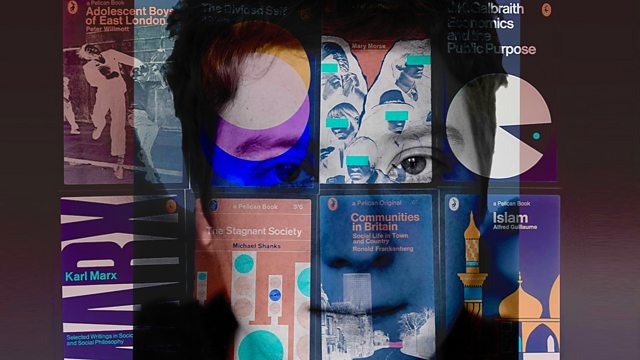The Art of Habit
Author and journalist Lynsey Hanley tells the story of the rise of sociology, which explored the hidden patterns of our everyday lives and offered radical new visions of Britain.
Author and journalist Lynsey Hanley tells the story of sociology In Britain, from Its beginnings in the slums of Liverpool and London to its rise in the post-war era as the brave, new ‘science of society’ – exploring the hidden patterns of our everyday lives while offering radical new visions of British society.
For the very first time all aspects of society and culture were considered worthy of study, from the ground up - and not just worthy, but essential for understanding how the built environment, civil institutions, technology, media, identity and ideas in our shared, social space really operate and shape us in turn.
Sociology flourished in the decades following the war, a gateway between the academy and the spaces of everyday life, from the study of football terraces and housing estates to youth tribes and popular culture, new patterns of labour and technology including powerful new media like television. Early studies of class, race and gender in Britain used actual field research, data gathering and new techniques such as ethnography and what was sometimes called 'participant observation'. Nothing was off limits: the discipline was incredibly wide-ranging, generating a popular factual paperback boom with imprints like Pelican publishing many hundreds of crossover titles.
As well as being the first academic subject to take the media seriously, sociology began to change the course of broadcast media itself. The discipline had a huge impact on the TV and radio documentary movement with programmes like the ���˿���’s ‘Panorama’ and ‘Man Alive’, and ITV's pioneering ‘World in Action’, operating somewhere between current affairs and considered, sociological analysis. Sociologists and documentary makers alike would access all areas, going inside prisons, youth cultures, the police, inner cities and new political groups. The recorded interview and everyday voice was central to both professions, with sociology sometimes referred to as a ‘listener’s art’.
At its core, sociology works on the belief that collective life always comes first and that individual behaviour can’t be understood in isolation. The discipline thrived in the 1960s and ‘70s, but the rise of a more aggressive ideology of individualism (together with the ascendency of Margaret Thatcher's Conservatism in politics in the 1980s) put the 'science of society' on the back foot. Free-market economics challenged sociology as the new intellectual paradigm of the age. The subject was dismissed as either irrelevant or pernicious.
Overwhelming challenges presented by climate change, mass urbanisation, social media and digital technologies have, in recent decades, revitalised sociology. Could it be that this great post-war social science is needed now more than ever as a critical force for truth, arbitration and intellectual vigilance in the digital and online age?
Contributors include sociologist Les Back, journalist and sociologist Gary Younge, writer and sociologist Ann Oakley, sociologist and broadcaster Laurie Taylor, writer and critic DJ Taylor, co-founder and host of the podcast ‘Surviving Society’, sociologist Chantelle Lewis, urban sociologist Paul Jones, senior curator at the BFI National Archive Patrick Russell, sociologist and British reggae pioneer William Lesley ‘Lyrics’ Henry, economist Shaun Hargreaves Heap, author Marcus Gilroy-Ware and John Scott, vice-president of the British Sociological Association.
Presented by Lynsey Hanley
Produced by Simon Hollis
With special thanks to Les Back
A Brook Lapping production for ���˿��� Radio 4
Last on
More episodes
Broadcasts
- Sat 15 Oct 2022 20:00���˿��� Radio 4
- Fri 21 Oct 2022 12:04���˿��� Radio 4

